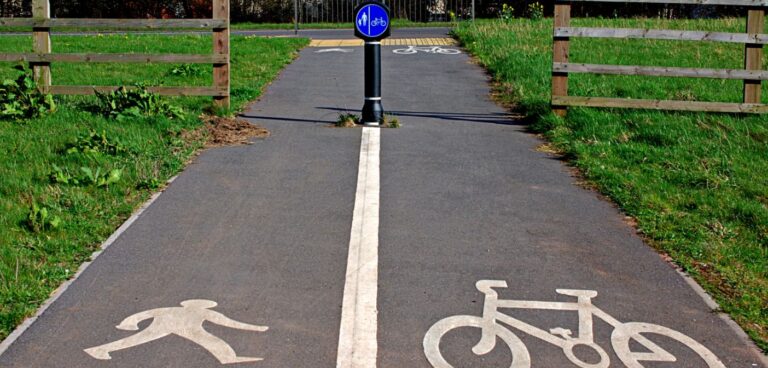A report released today [7 June 2023] from the National Audit Office (NAO) has revealed that the UK government is not on track to meet its statutory targets for active travel.
These, the publication has shown, have been impacted by inconsistent local delivery of schemes and poor understanding what has been achieved to date.
The UK government believes active travel has potential to support wider strategic priorities to increase physical activity, tackle obesity, improve air quality and achieve net zero carbon emissions by 2050.
Campaign groups have said that failure on the part of the Department for Transport (DfT) to meet these objectives will impact future generations’ ability to walk, wheel and cycle safely.
DfT has set four central objectives to help achieve this:
- to increase the percentage of short journeys in towns and cities that are walked or
cycled from 41% in 2018-19 to 46% in 2025, 50% in 2030 and 55% in 2035 - increase walking activity to 365 stages per person per year in 2025
- double cycling from 0.8 billion stages in 2013 to 1.6 billion stages in 2025
- increase the percentage of children aged 5 to 10 who usually walk to school
from 49% in 2014 to 55% in 2025.
According to the report, the government is not on track to meet all of its objectives. It points out that DfT has made progress against most (22 out of 33) actions, especially those targeting capability, including the formation of Active Travel England (ATE).
The report comes three months after the DfT cut active travel funding.
It likewise points out that ATE has the potential to be a catalyst for increased walking, wheeling and cycling and that the body has made good early progress, but that maintaining this early momentum is critical.
Gareth Davies, head of the NAO, said: ” “Active travel schemes have the potential to deliver significant health and environmental benefits. However, DfT knows little about what has been achieved through its past spending and is not on track to achieve most of its objectives.
“DfT has raised its ambitions for active travel and recognised areas where its performance must improve. Establishing Active Travel England is a good step; Active Travel England and DfT must now maintain this early positive momentum, by learning what works and applying it and building partnerships across central and local government.”
It also found that, despite the targets to increase the numbers of people walking and cycling and children walking to school, all activity levels are now lower than when the objectives were set in 2017.
Campaign groups have also criticised the government’s underfunding of active travel.
Xavier Brice, CEO at walking and cycling charity Sustrans, said: “It’s clear the government has back-pedalled on its promises, and is missing an easy win on the path to achieving Net Zero commitments, with proven benefits for public health.
“This report reveals that active travel objectives are in tatters, and only serves to highlight that long-term and ring-fenced investment can transform lives, if done well.”
Representatives from the Walking and Cycling Alliance, including the campaign groups The Bikeability Trust, British Cycling, Cycling UK, Living Streets, Sustrans and the Ramblers, have welcomed the report and have called for the government to publish evidence for the funding required to achieve its objectives for 2025 and 2030 targets.
Some other key findings included that the speed at which active travel schemes were delivered during the COVID-19 pandemic led to some poor value investments and that longer-term stable funding and building more capability are needed.





